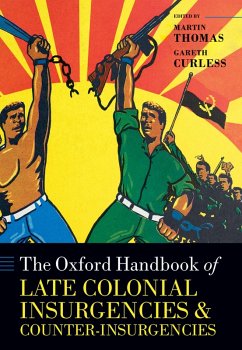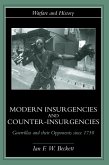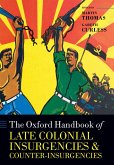The lethality of conflicts between insurgent groups and counter-insurgent security forces has risen markedly since the Second World War just as those of conventional, or inter-state wars have declined. For several decades, conflicts within states rather than between them have been the prevalent form of organised political violence worldwide. Recent conflicts in Afghanistan, Iraq, and Syria have fired interest in colonial experiences of rebellion, while current western interventions in sub-Saharan Africa have prompted accusations of 'militarist humanitarianism'. Yet, despite mounting interest in counter-insurgency and empire, comparative investigation of colonial responses to insurrection and civil disorder is sparse. Some scholars have written of a 'golden age of counter-insurgency', which began with Britain's declaration of a Malayan Emergency in 1948 and ended with the withdrawal of US ground troops from Vietnam in 1973. It is with this period, if not with any presumed 'golden age' that this volume is concerned. This Handbook connects ideas about contested decolonization and the insurgencies that inspired it with an analysis of patterns and singularities in the conflicts that precipitated the collapse of overseas empires. It attempts a systematic study of the global effects of organized anti-colonial violence in Asia and Africa. The objective is to reconceptualize late colonial violence in the European overseas empires by exploring its distinctive character and the globalizing processes underpinning it.
Dieser Download kann aus rechtlichen Gründen nur mit Rechnungsadresse in A, B, BG, CY, CZ, D, DK, EW, E, FIN, F, GR, HR, H, IRL, I, LT, L, LR, M, NL, PL, P, R, S, SLO, SK ausgeliefert werden.









